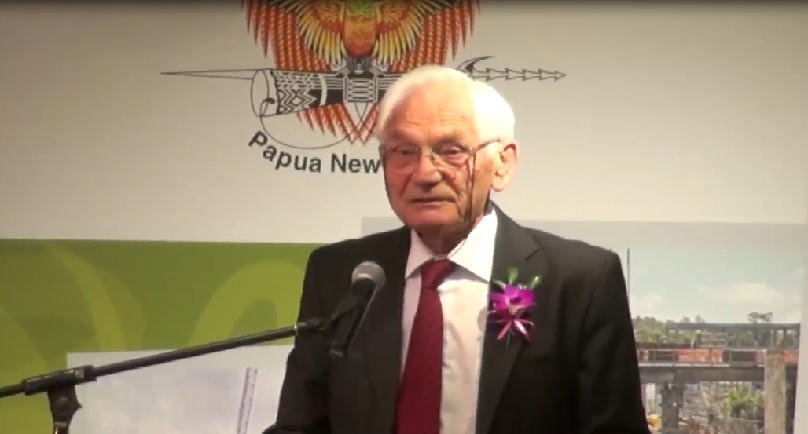By Hera Hoi – EM TV Online
An economist, Dr. Jacob Weiss, who has been working and visiting Papua New Guinea for many years expressed his views on the country’s economy. His most recent comments were at the 2015 Leadership Summit, which was held recently in Port Moresby.
Before he could acknowledge the opportunity which any Papua New Guinean is faced with, Dr Weiss expressed his disappointment of the past opportunities the country had been presented with, saying the country has “nothing to show for it”.
“This country [Papua New Guinea] has had two opportunities: one was in 1990, 1991, 1992. We had the Bougainville crisis, which wiped out 35 per cent of all GDP, 32 per cent of our exports, and we had a fight on our hands, a war on our hands.
“But very immediately, almost overnight, we got Misima starting production, Porgera coming on stream, Kutubu, and oil field producing… huge opportunities. Huge,” said Dr Weiss.
“The second opportunity, 2010, just five years back, [there was] 7-8 billion kina in trust account because of the high commodity prices; what is now in the trust account [is] maybe a couple of hundred thousand or zero.”
A growing GDP, which Papua New Guinea has achieved in the last 15 years, is evidence of a society getting its collective act together. As its economy grows, a society is supposed to become more tightly organised.
Unfortunately for Papua New Guinea, translating that wealth and growing GDP for its people has been poor.
“What was the outcome? Where is that money? All these opportunities lost, with nothing to show for it.
“Because what we’ve proven until now [is] the opportunities are there, but they disappeared, they are lost,” said a disappointed Weiss.
While Papua New Guinea has struggled to translate that wealth into resources that could support its people, the growing GDP is not an end in itself. Sustaining this growth will be necessary if Papua New Guinea aims to create resources that support healthcare, education and other millennium development goals for communities across the nation.
Papua New Guinea is once again faced with another huge opportunity that experts have forecasted will have an enormous impact on its GDP: the 40-year-long LNG project.
But Weiss challenged that this is not the time for Papua New Guinea to count its chips:
“Don’t count your chips until they fall. When we see the results, this is when we will count our chips.”
While the mining and petroleum sector has generated and sustained Papua New Guinea’s economic growth, spreading that growth across the country’s rural areas has been a major challenge. Weiss attributes this challenge to the mining operation being an ‘enclaved operation’, which explains the unequal distribution of wealth among communities across the country.
Papua New Guinea’s economic growth is very narrow, with annual GDP figures mostly from “four or five months and from the petroleum industry.” He affirmed that the only way that the Papua New Guinea Government could spread the growth was by investing in rural agriculture.
Weiss gave the scenario of emerging economies like the United States of America, who built their economies from their dominating agricultural sector 200 years back.
“We cannot jump the stages; no-one jumps the stages,” said Weiss
If the growing GDP can be sustained with the country’s vast mineral resources and agricultural resources, the majority of rural Papua New Guinea can be spared from poverty and drudgery.


